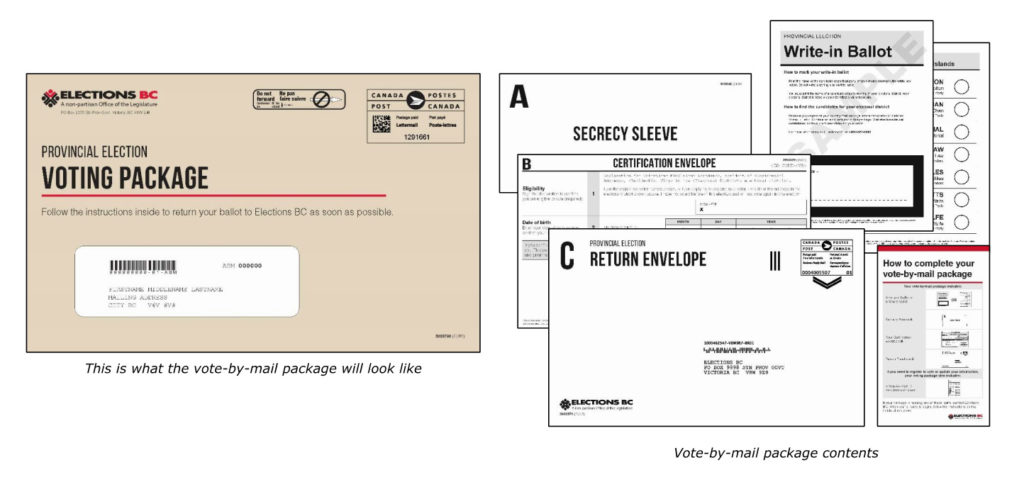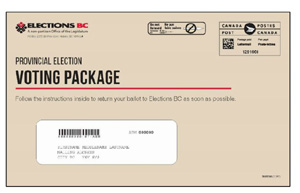
Tuesday September 22, 2020 | VICTORIA, BC [UPDATED September 23, 2020 – section on advance voting]
by Mary P Brooke, editor | Island Social Trends
“It is conceivable, yes,” that BC could go for some period of time after the October 24 general election date without a government in place — that’s the reply by Anton Boegman, B.C.’s Chief Electoral Officer, to a live question this morning by Mary Brooke of Island Social Trends.
This possibility is due to the absentee and mail-in ballots not being counted until at least 13 days *after* the general election date. Under normal conditions this rarely tips more than a few riding results, if any (mail-in ballots are usually about one percent of total ballots cast).
But Elections BC is expecting as many as 800,000 mail-in ballots in this provincial election during the COVID-19 pandemic. Many British Columbians say they will opt for mail-in voting as a health and safety precaution — either by choice or because they are required to self-isolate in response to a COVID-19 exposure.
Voters who wish to cast a ballot by mail are asked to request their voting packages as early as possible, either online or by phone at 1-800-661-8683.
Mail-in ballot count could reach 800,000:
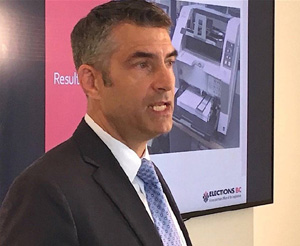
With over 20,000 mail-in ballot requests made already through the www.elections.bc.ca website since yesterday — that 800,000 range of ballots by mail is now anticipated (based on surveys by Elections BC in May and August).
The likelihood of not knowing the full outcome of the provincial election for three weeks or more is probably high.
This could leave BC without a confirmed government in place for quite some time, even more so if final results have a razor-thin margin and we see adjustments such as what happened in May through July 2017, when finally the Lieutenant Governor had to make a judgement call which resulted in NDP Leader John Horgan becoming premier with the support of three Green MLAs to form a minority government by way of a Confidence and Supply Agreement (CASA).
Counting as quickly as possible:
“Our commitment is to make sure the count is done as quickly as possible,” Boegman said. “If there are 800,000 it will take longer. I don’t know how much longer, but it will take longer.”
“For those voters that request the ballot early, they will be getting a write-in ballot,” said Boegman. In that sense, there could be a scenario in this election where not all ballots that voters complete will end up counting in the final tally. All the early mail-in ballots being requested ahead of October 2 will not have candidate names listed in the package and voters could make errors in that regard.
This leads to the concern that if people are writing-into ballots there could be entries made that are rejected (due to incorrect candidate name, name misspelled, or other markings that invalidate the ballot) although Boegman says there is “flexibility”. For example, if a name is misspelled but the intention is clear, that ballot will be accepted, he told media today. The voter can also mark the name of the political party that they wish to vote for.
Elections BC has a section in their website about How to Vote by Mail.
Ballots after October 2 will include candidate names:
Candidate nominations close on Friday October 2, with the final list of candidates to be be posted online at elections.bc.ca as soon as possible after nominations close, says Elections BC.
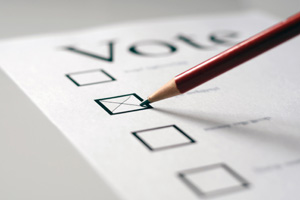
After that point, all mail-in ballots that are sent out from Elections BC will have the names of candidates included for that voter’s electoral area (registration to receive the mail-in ballot of course includes the voter’s address, which serves to know their electoral area).
Relying on Canada Post, and friends:
Based on the assumption that Canada Post will ably fulfill the delivery of all ballots put into collection mail slots/boxes, people are assuming that their mailed ballot will be counted.
But things do happen to mailboxes … thefts and damage do happen which result in the delay or loss of mailed items. Or there are simple things… like someone who is in self-isolation due to COVID-19 relies on a friend or neighbour to mail their package and somehow that errand gets delayed or forgotten.

No guarantees, and other possibilities:
And there is no guarantee that voters have remotely completed their ballots properly, and — in the end — their assurance about voting-by-mail will have failed in terms of democratic process.
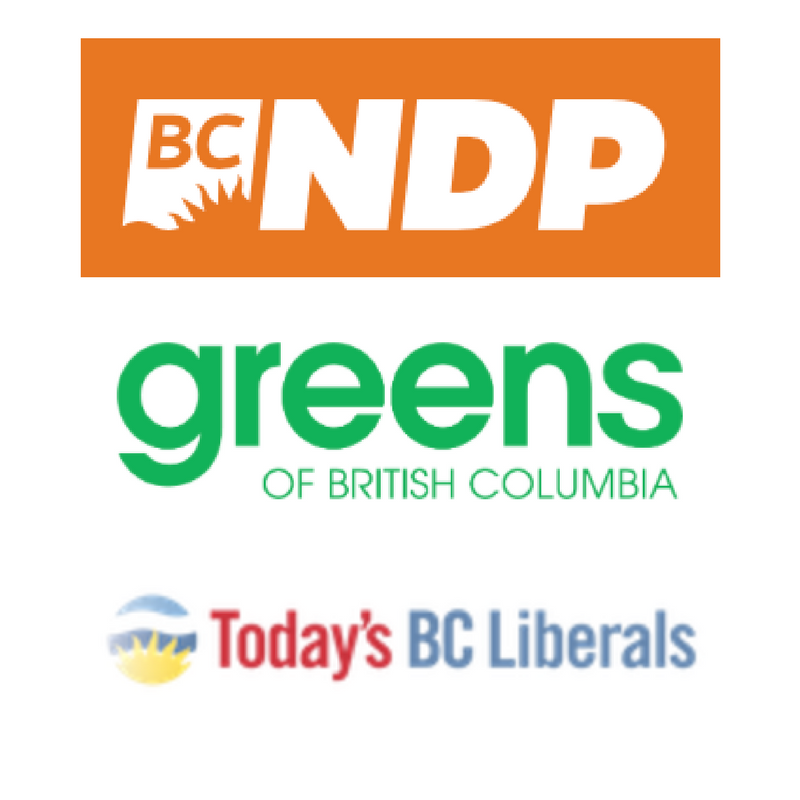
There is also the strong likelihood that the politically-active and party-affiliated persons who already know the name of their own candidate will be a large number of people using the mail-in ballot process. This could work in favour of any given party (they will be ‘assuring’ themselves a certain number of votes), or against (given the volume of expected mail-in ballots — especially from early voters — the results of the election could be delayed for almost three weeks).
All of this lends a lot more uncertainty as to electoral process and accuracy of outcomes than is being implied in current announcements to media and the public about how reliable the Fall 2020 election will be in terms of voting process, let alone the worries and challenges around health and safety during the ongoing COVID-19 pandemic.
COVID-19 readiness:
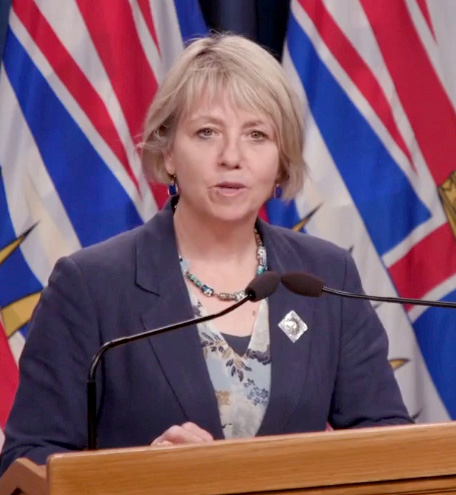
Today during the Elections BC press conference delivered along with Provincial Health Officer Dr Bonnie Henry, BC’s top doctor said the pandemic is here for a long while.
“This virus is going to be with us for some time. We have to treat it with humility,” said Dr Bonnie Henry in her live teleconference today.
She said she “cannot predict what fall, winter or spring is going to look like” in terms of how COVID-19 is impacting things. This was in the context of holding any election in BC.
Elections BC has taken guidance from the Provincial Health Office since April on how to remain in compliance with the Elections Act — primarily that the constitutional right to vote is able to be delivered upon, despite even a pandemic.
Public health protocols for safety during COVID-19 will be in place for voting station staff and voters, including the expectation of physical distancing, wearing of masks, hand sanitizing on site, and staying home if you’re not well.
You can bring your own pen or pencil to the ballot box this year (instead of using those little golf-style pencils that some people find frustrating due to mini-size for a good grip and sometimes poor marking ability).
More advance voting days:
Compared to the six (6) advance voting days of the 2017 BC provincial election, this time there will be seven (7) advance voting days. Two those will be on a weekend. General voting day is also on a weekend — Saturday October 24.
In the last election, 44% of voting stations were operated in schools. Due to COVID-19, schools will only be used on weekends in this election cycle.
Similar risk to quick grocery trips:
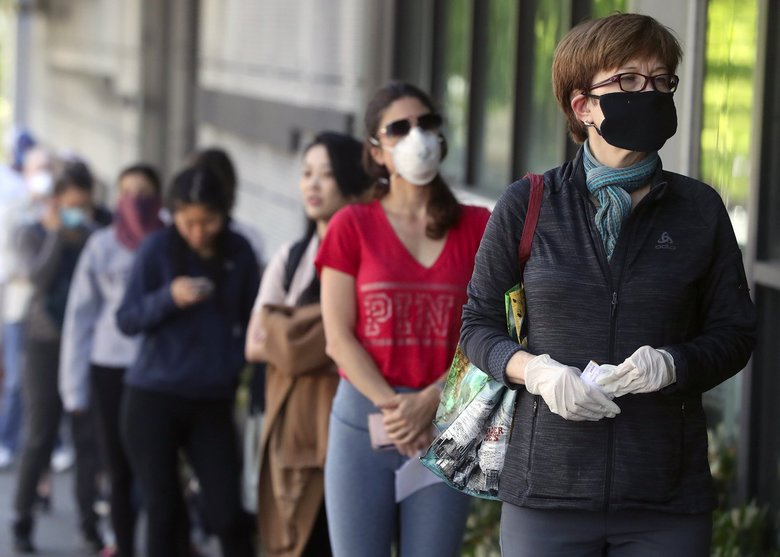
In terms of risk to be voting in person, Boegman and Dr Henry both said that casting your vote will be “like getting a takeout coffee” or making a quick trip to the grocery store for milk, in terms of how much time you would spend around other people.
All election workers will be wearing masks, and voters are expected to as well. Voters will not have to remove masks as part of confirming their identity at voting stations; identification can be confirmed with a verbal declaration in this election due to the COVID-19 situation or showing other identification at a readable distance.
Dr Henry’s focus going forward:
“My focus right now is ensuring that we continue to respond to this pandemic, and focus all energies on everything we can to manage this virus, while ensuring that important things for wellness of the community continue – back to work, school, and important functions whenever they occur,” said Dr Henry.



